Milestones
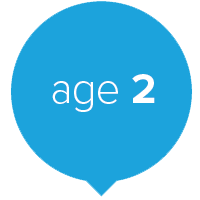
By age two most children will be able to:
- Use 10-20 words including names
- Combine 2 words
- Point to Basic body parts
- Bring objects from another room
- Combine nouns and verbs
- Ask who, what and where questions
- Draw lines on paper with pencil, crayon, or marker
- Imitate peer and adult play
- Help take off pants and shirt
- Stack blocks
- Play with puzzle pieces
- Learn to kick, roll and throw a ball
- Drink from open cup
- Hold and snip with scissors
- Use a spoon, begin using fork
- Walk up and down stairs w/o support
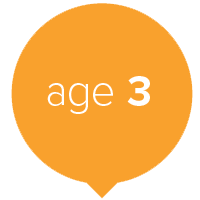
By age three most children will be able to:
- Form word plurals by adding /s/
- Combine noun and verbs
- Ask what, who and where questions
- Form sentences using 4 or more words
- Solve problems by talking rather than crying
- Follow 3 step commands
- String beads
- Start to build with blocks
- Can play independently with toys for extended period of time
- Learn to catch a medium sized ball
- Begin to dress themself
- Open doors by turning the handle
- Copy vertical/horizontal line and circle
- Cut a straight line
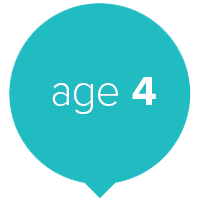
By age four most children will be able to:
- Have a vocabulary of ~1,000 words
- Know basic identifying information such as first and last name, address, etc.
- Spontaneously sing nursery rhymes or familiar songs
- Produce consonants with 90% accuracy
- Form sentences with 5 or more words
- Use adult like grammar
- Throw ball overhand and underhand
- Draw simple shapes and cut out a circle
- Share/take turns
- Begin dramatic play
- Pour liquids easily from a small pitcher
- Button and unbutton larger buttons
- Wash his/her own hands
- Dress with adult supervision
- Attempt to brush teeth
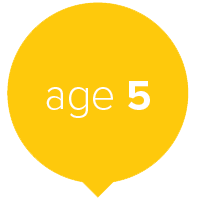
By age five most children will be able to:
- Use past tense correctly
- Be understood by people outside of the home
- Have a vocabulary of 1,500 words
- Identify shapes
- Understand imaginary conditions
- Use sentences with 6 or more words
- Pay attention to a short story and answer simple questions about that story.
- Print name from memory
- Color within the lines
- Dynamic tripod grasp
- Throw at a target 5 feet away and hit target
- Cut out a square
- Draw a person with 6 or more different parts
- Dress without supervision
- Tie and untie knots
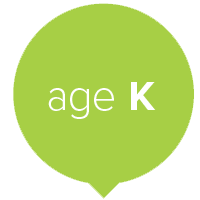
Before kindergarten most children will be able to:
- Speak in compound sentences
- Define objects by their use, ex: I use a fork to eat
- Understand spatial concepts such as far and near
- Identify money and change
- Understand same and different and other opposites

